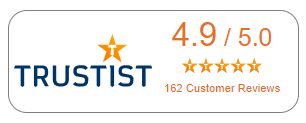
Welfare Benefits Overview
Delivered Live Online
Overview of Welfare Benefits
Course Overview
Learn about the key welfare benefits and the qualification rules for each of them, so that you can offer advice to your vulnerable customers, increase benefit uptake and help to reduce rent and council tax arrears.
This course provides a clear overview of welfare benefits, including eligibility criteria, application processes, required documentation, and key contact points. It covers both means-tested and non means-tested benefits, contributory and non-contributory schemes, as well as the transition from Legacy Benefits to Universal Credit.
The course prepares participants to offer guidance and support to vulnerable customers facing financial hardship, rent or council tax arrears.
Pre-requisites:
There are no formal prerequisites for this course; it is suitable for experienced benefit staff, those who work in an advisory capacity such as customer service officers and those who are new to benefits and would like to update their skills.
- Housing Officers
- Welfare advisors
- Customer service officers
- Call Centre staff
- Team leaders and Managers
- Benefit assessors / assistants
Learning Objectives:
By the end of the course, and with reference from the course manual, delegates will be able to:
- List several available welfare benefits along with future changes.
- State which people could apply for each benefit.
- Explain where to go for help and advice.
- Advise which information needs to be supplied with each application.
- Describe how each benefit is calculated.
- Explain how a premium affects a benefit.
- State which decisions are appealable.
- Explain how different changes affect these benefits.
- Explain what localised support is available.
By the end of the course, and with reference from the course manual, delegates will be able to:
- List several available welfare benefits along with future changes.
- State which people could apply for each benefit.
- Explain where to go for help and advice.
- Advise which information needs to be supplied with each application.
- Describe how each benefit is calculated.
- Explain how a premium affects a benefit.
- State which decisions are appealable.
- Explain how different changes affect these benefits.
- Explain what localised support is available.
Content:
- Understand what financial and housing support is available
- Learn who can get help (based on income, health, age, caring needs, or work status)
- Understand changes to the welfare system (some older schemes being replaced)
Qualifying rules for:
- New Style Job seekers allowance
- New Style Employment Support Allowance
- Carers Allowance
- Personal Independence Payments
- Disability Living Allowance
- Attendance Allowance
- Council Tax Reduction
- Basics of Universal Credit and Housing Benefit
- Help for persons of Pension Age
- Localised Support
Learning, Teaching and Assessment:
Learners will experience a range of classroom teaching methods including group-working, case studies and both individual and group presentations. Traditional teaching is supported by a virtual learning environment that is used to host a range of electronic supporting materials including desk aids, course manuals and exercises to keep delegates engaged. Assessment is provided by a mix of coursework / verbal examination / written examination and feedback will be provided to the learner and the employer.

